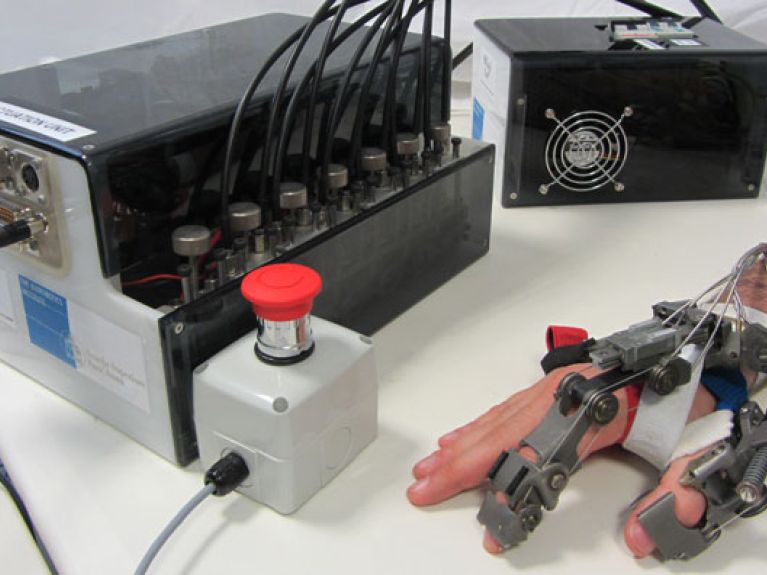More quality of life for the paralysed
Researchers in Tübingen have teamed up with European colleagues to develop a robot hand for paraplegics.

They give paraplegics a degree of independence again: Scientists at Tübingen University have developed a brain-controlled robot hand. It enables paraplegics to handle eating and drinking themselves, for example. In fact, 40 percent of paraplegics can still move their shoulders or elbows, researchers say – and the robot hand is designed especially for them. The innovation is the result of a joint effort with the BioRobotics Institute in SantʼAnna, Italy, and Spain’s Guttmann Institute in Badalona.
Users can enter a “veto”
Electrodes are attached to the crown of the user’s head – and they can then control the robot hand by brainwaves and eye movements. A special innovation is that users can enter a “veto” by means of eye movements: As long as he or she looks at the hand, the grip remains closed. In this way, users are less likely to drop items.

